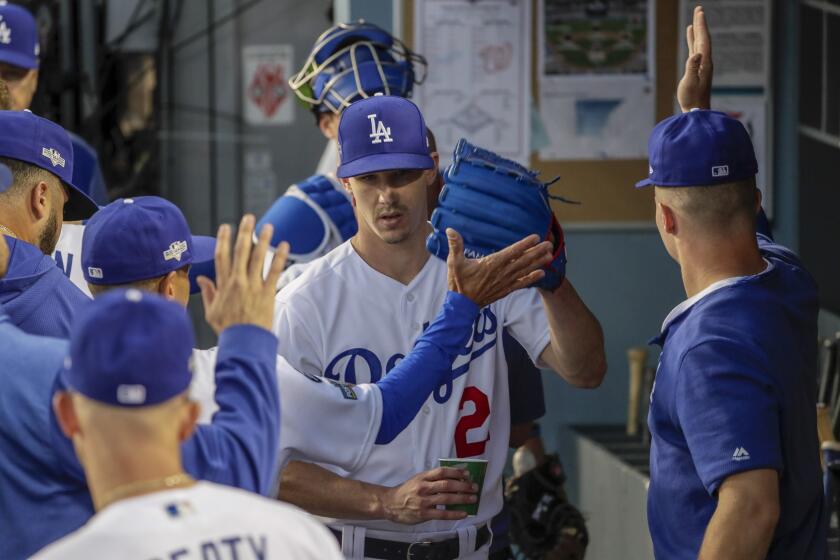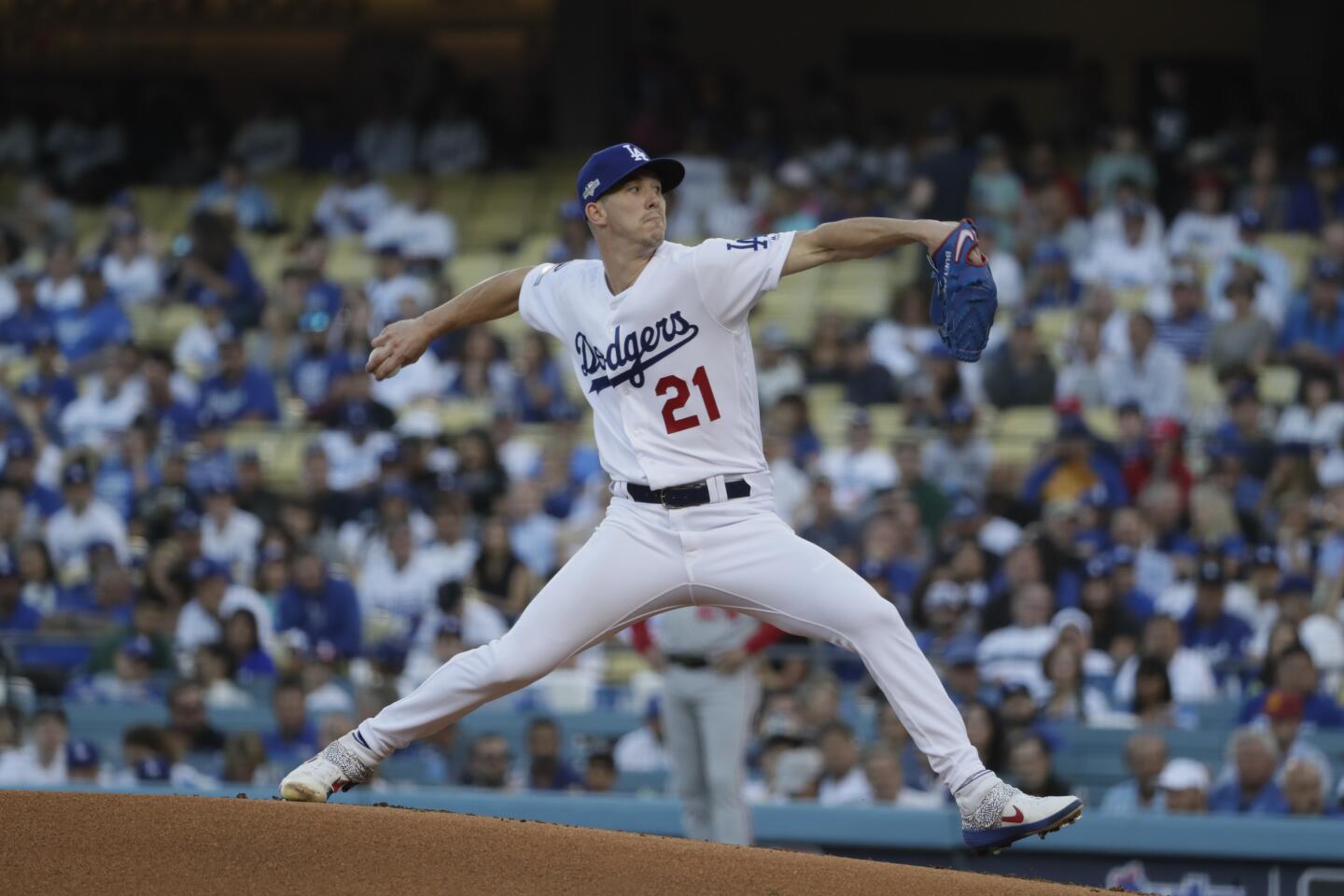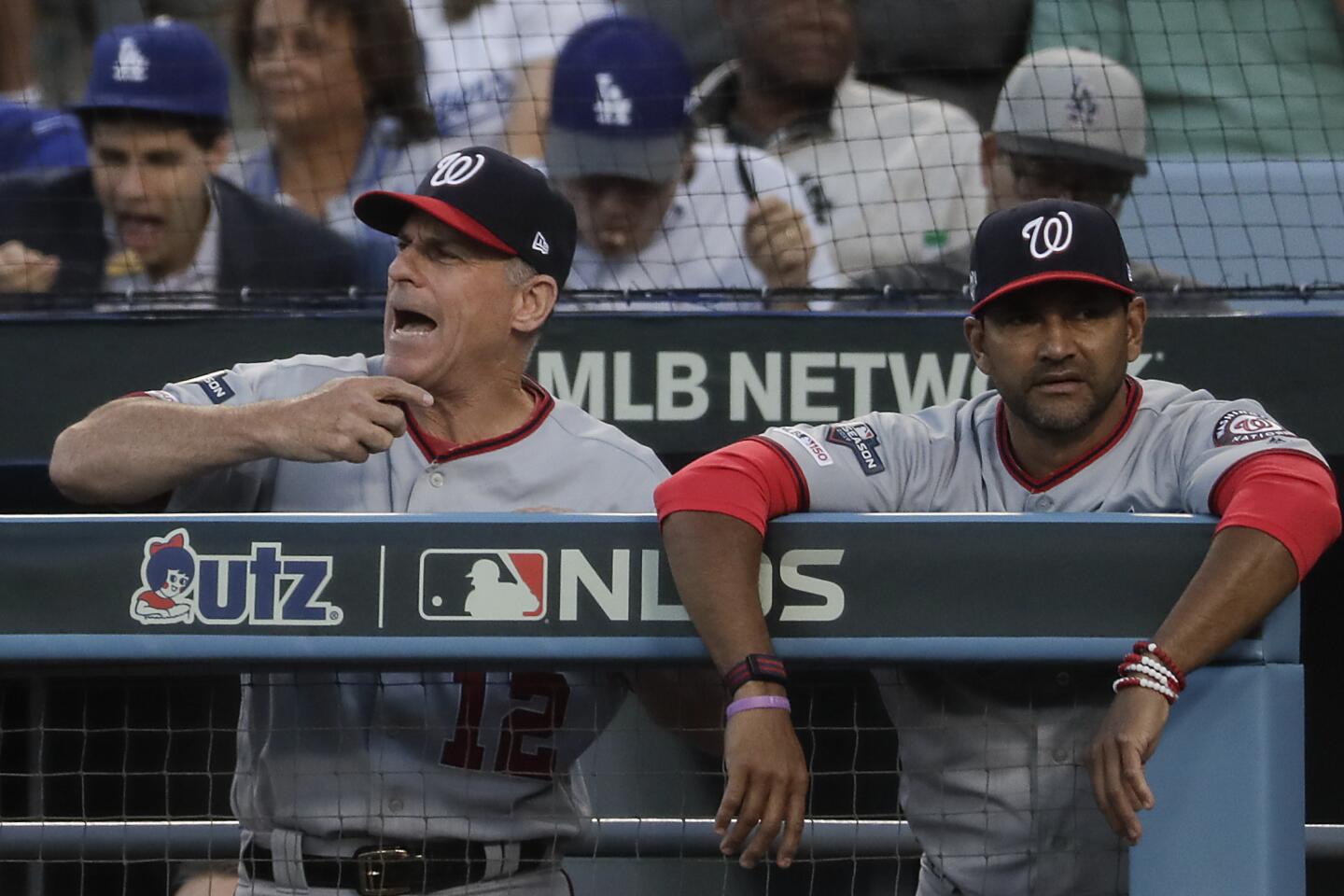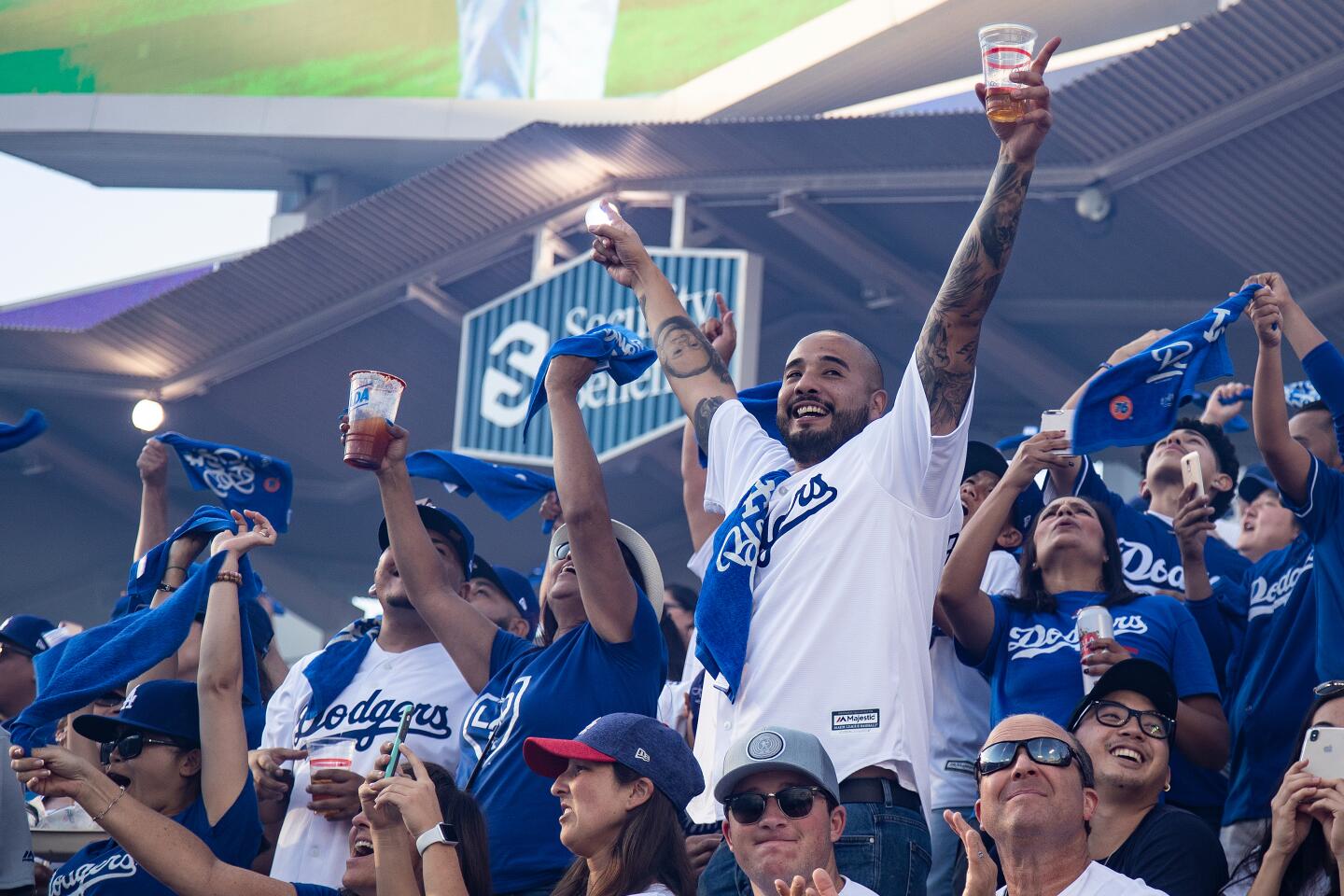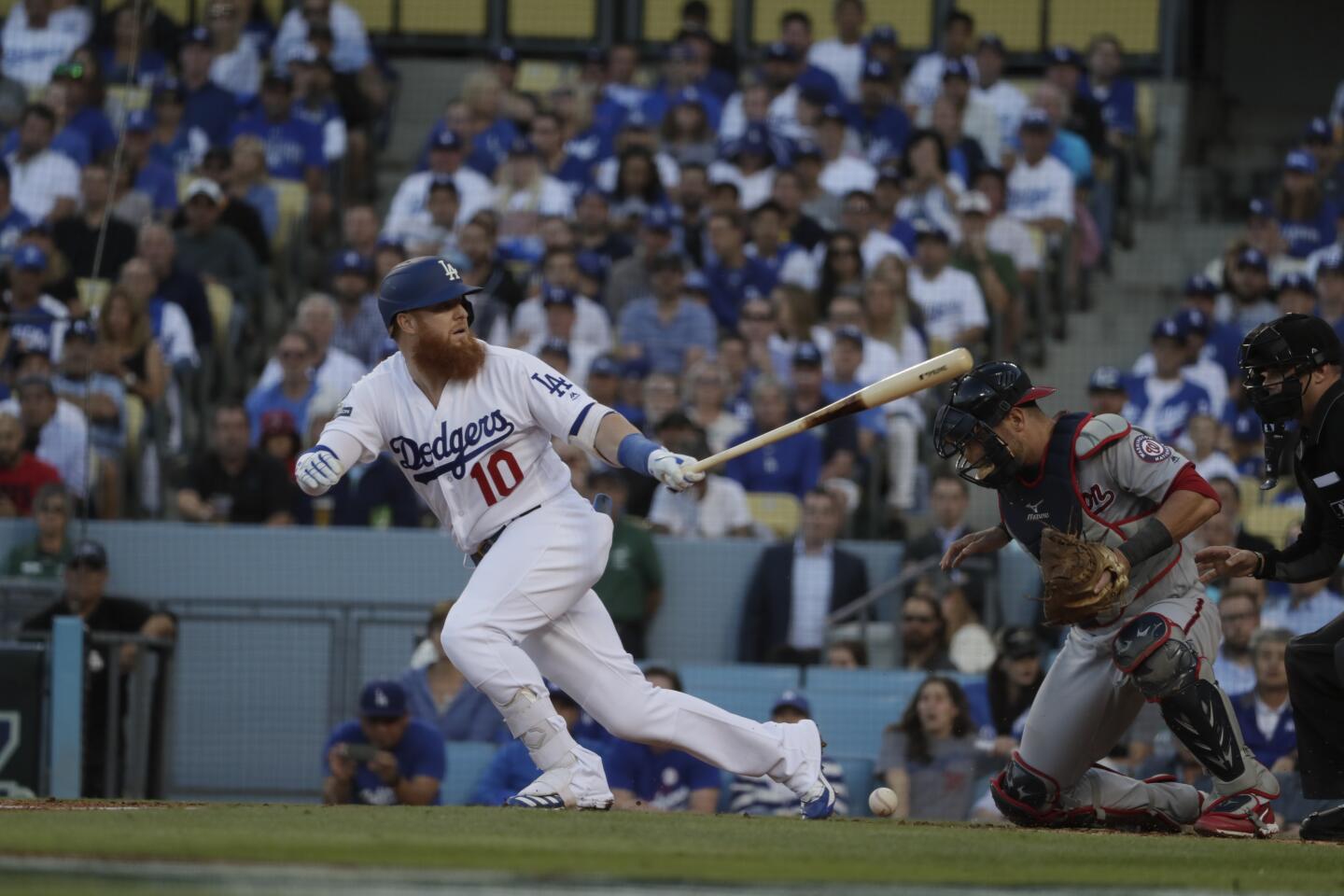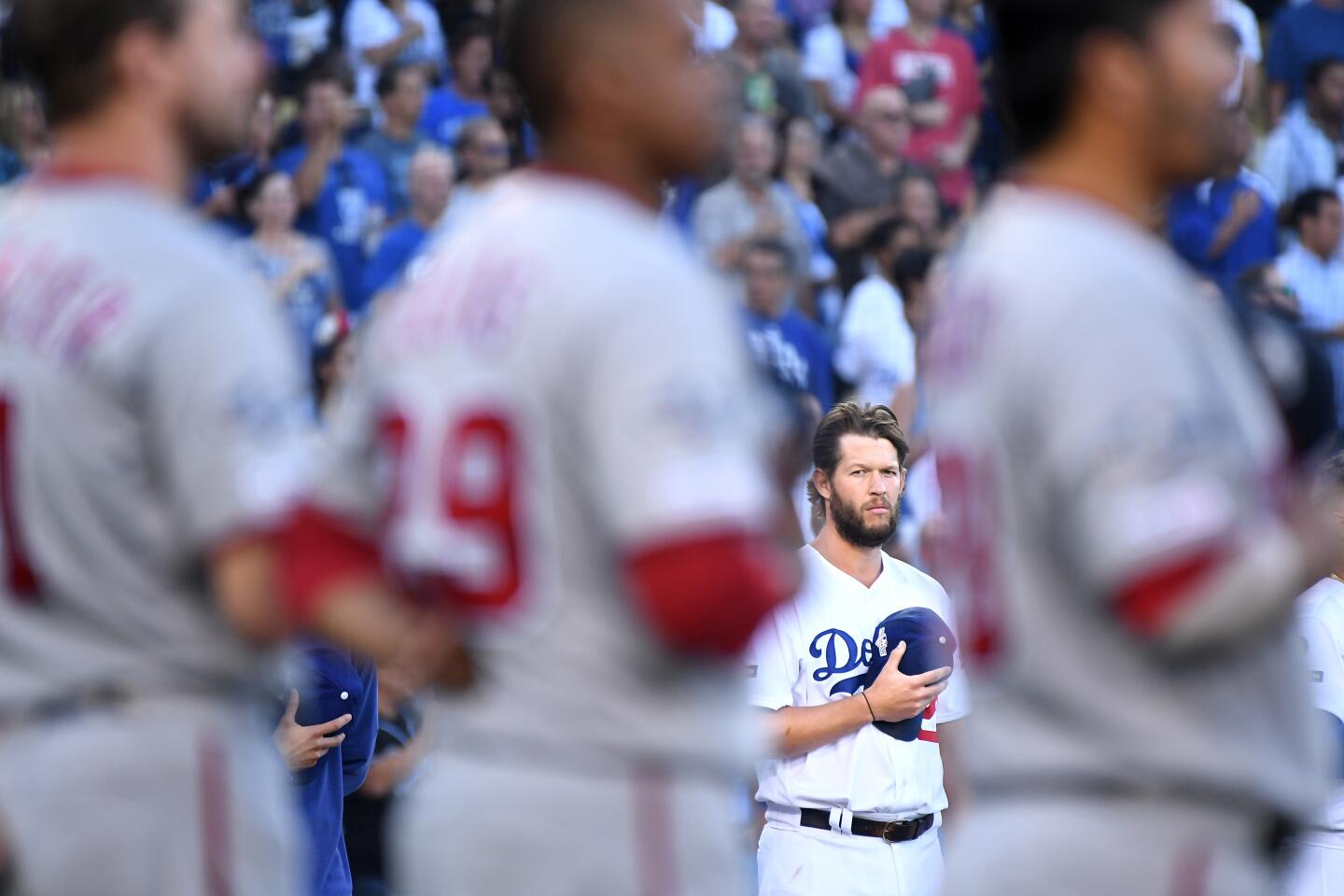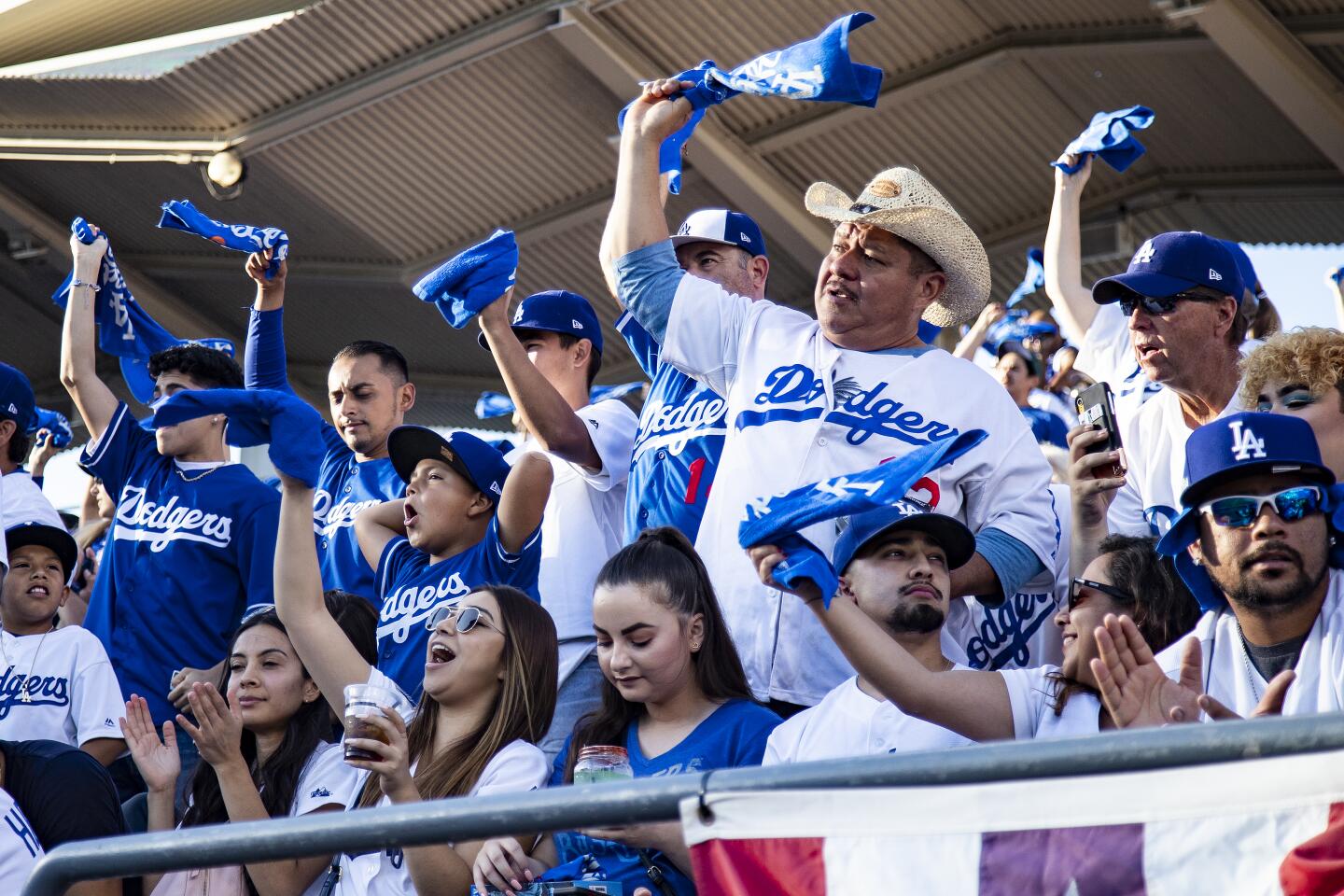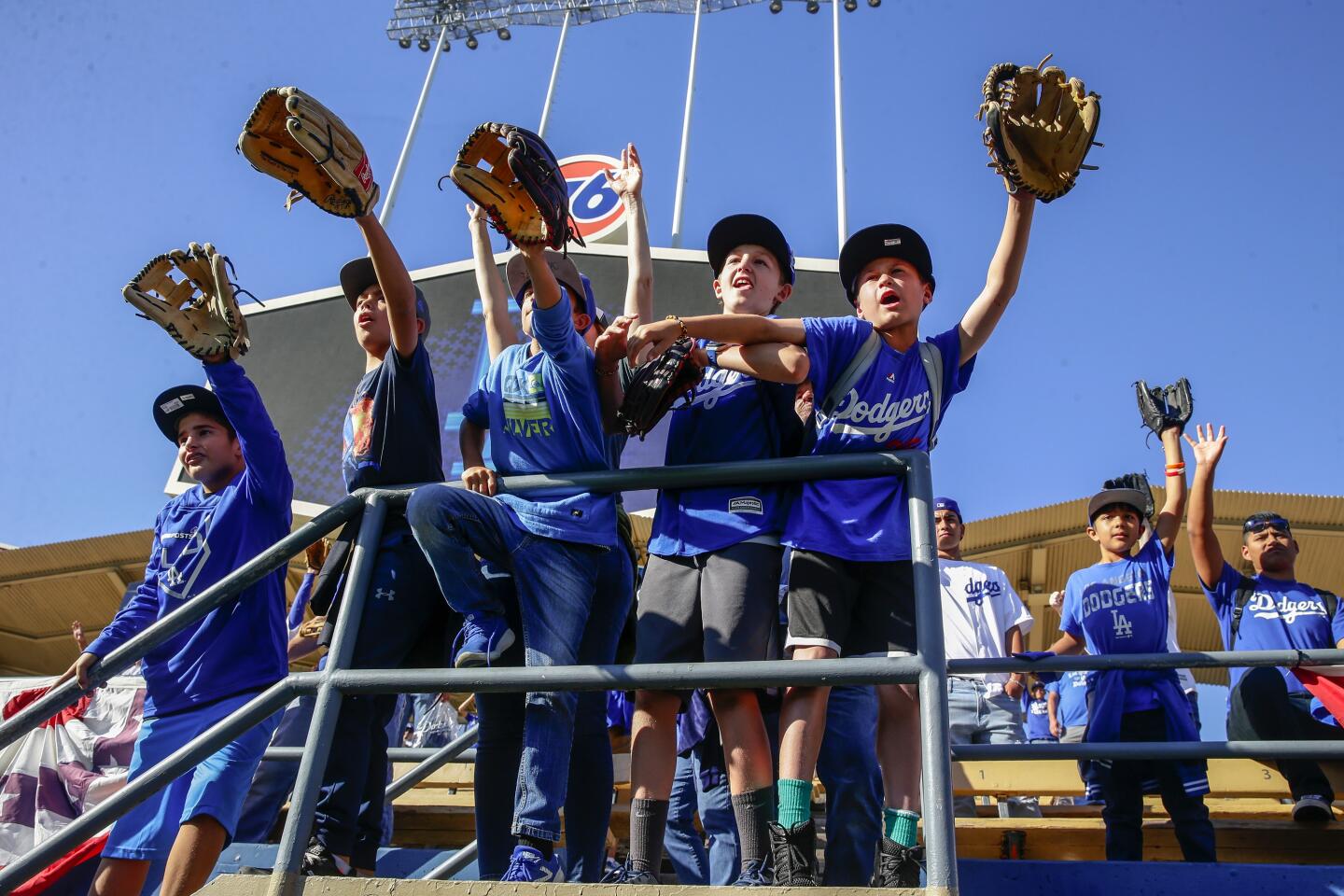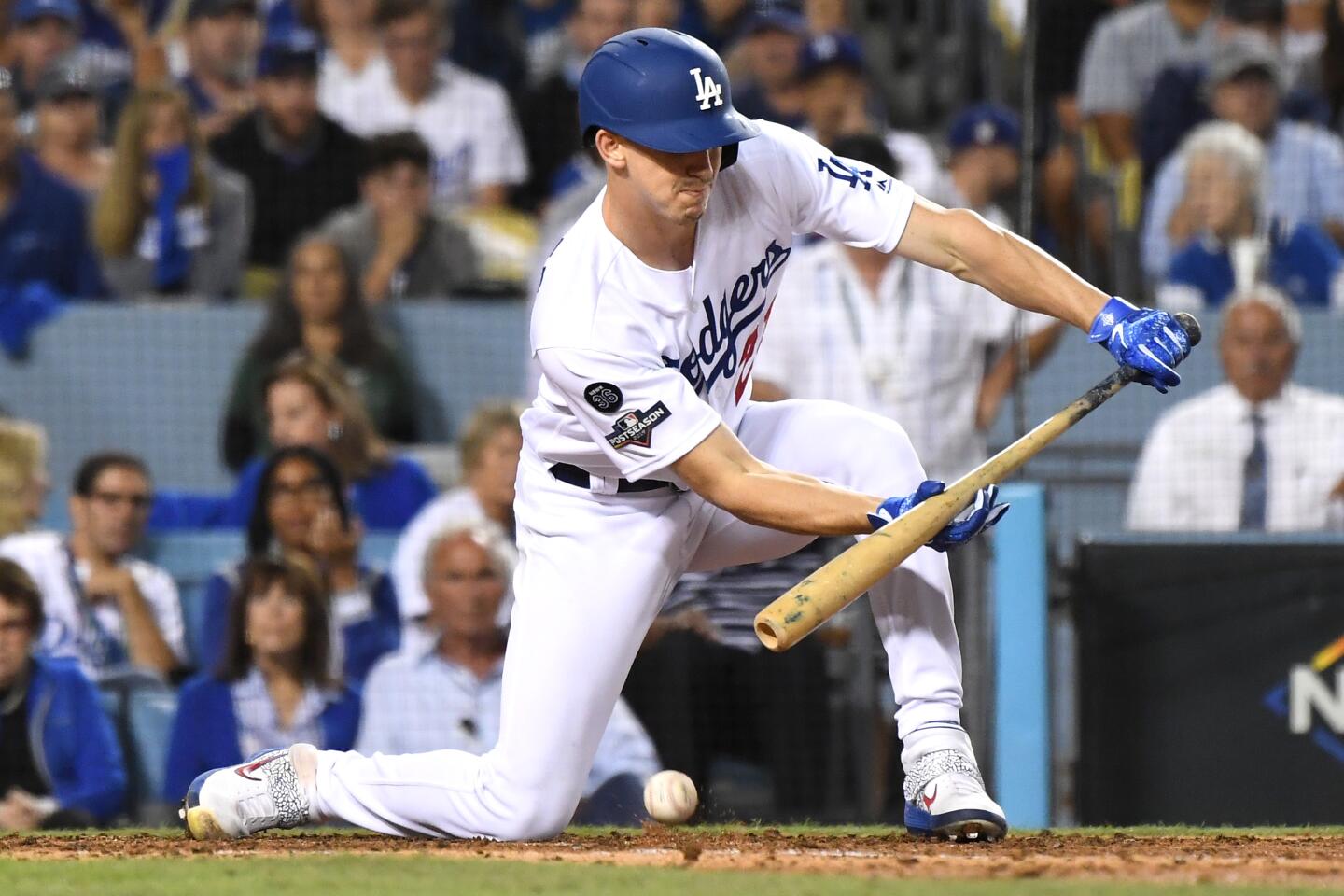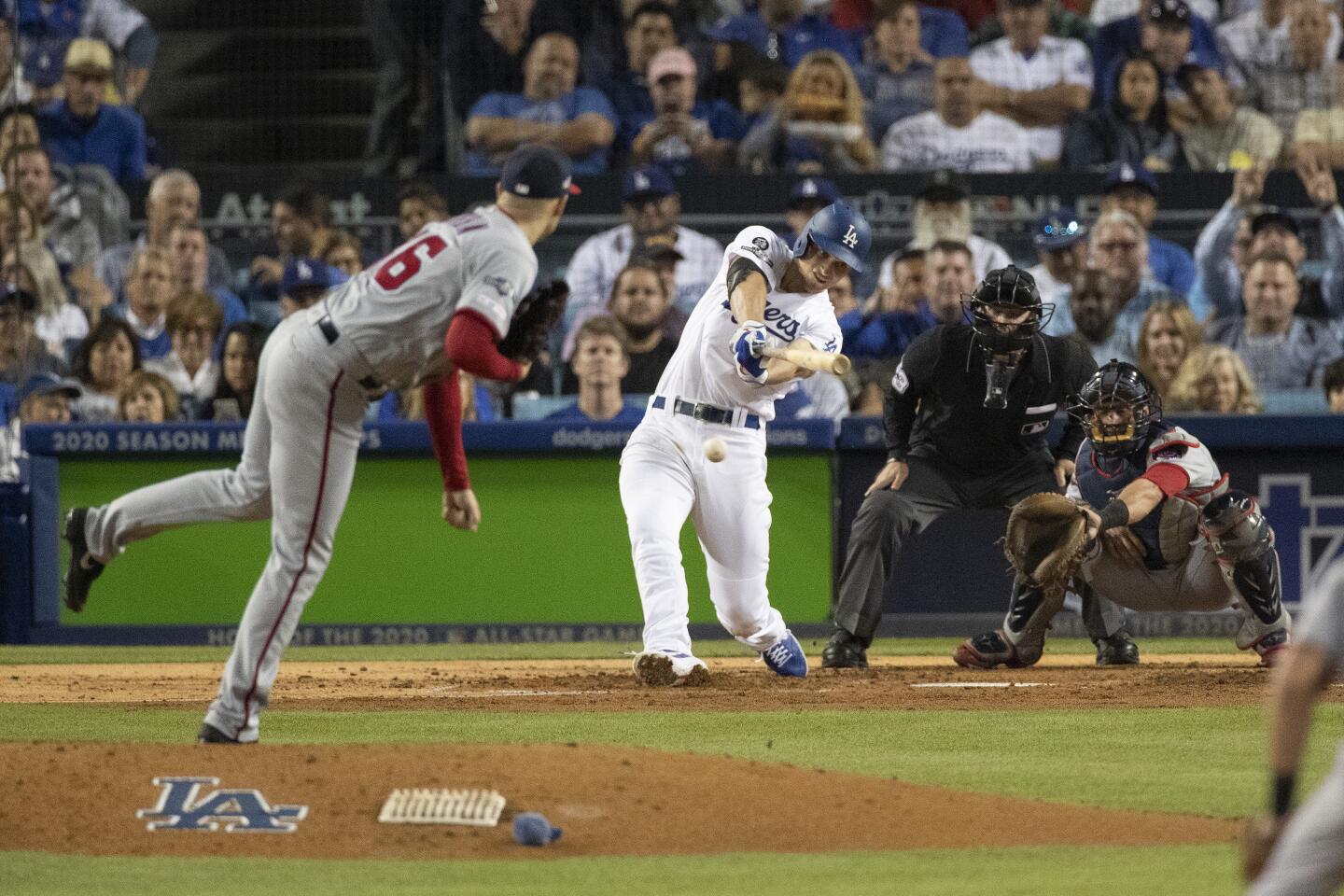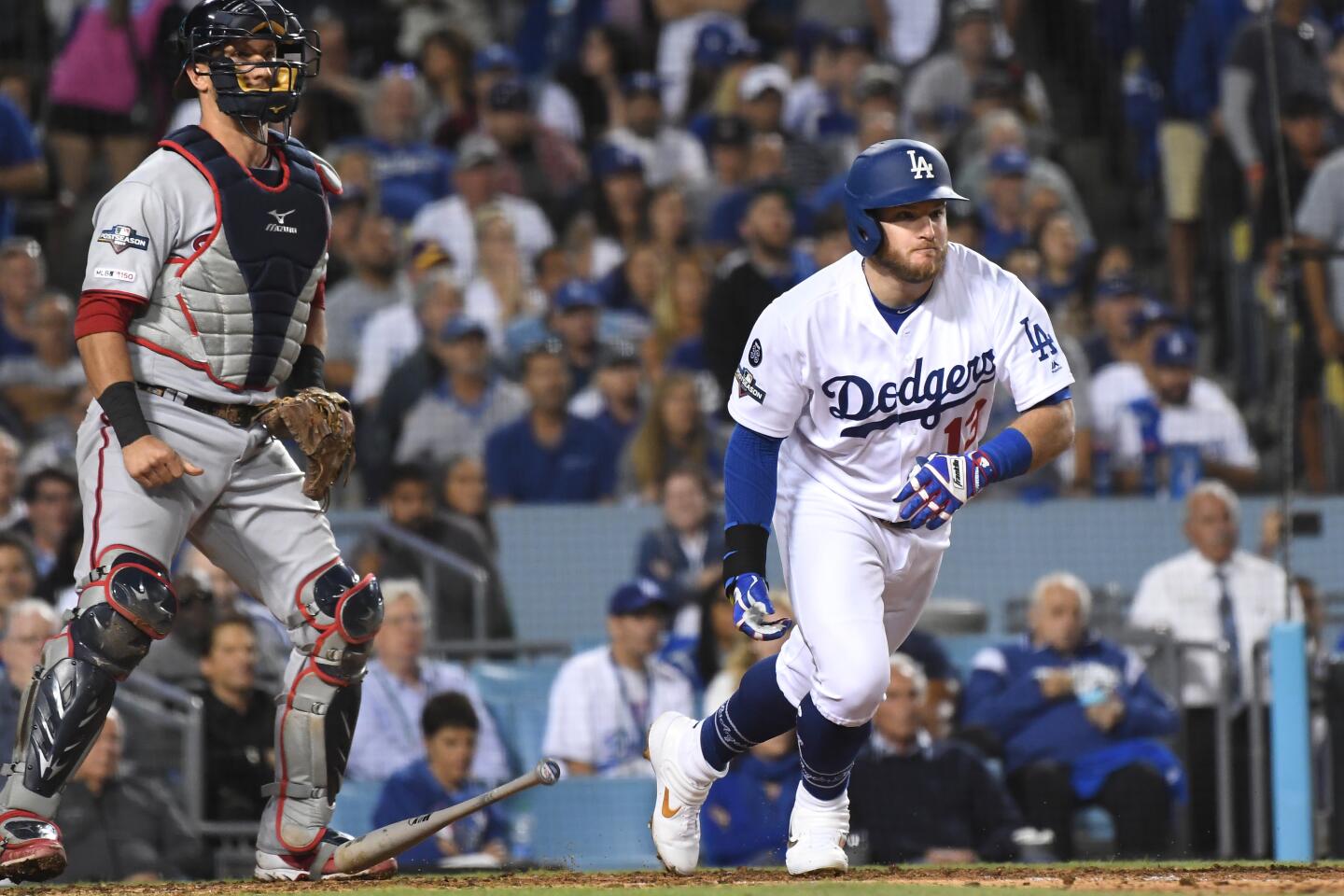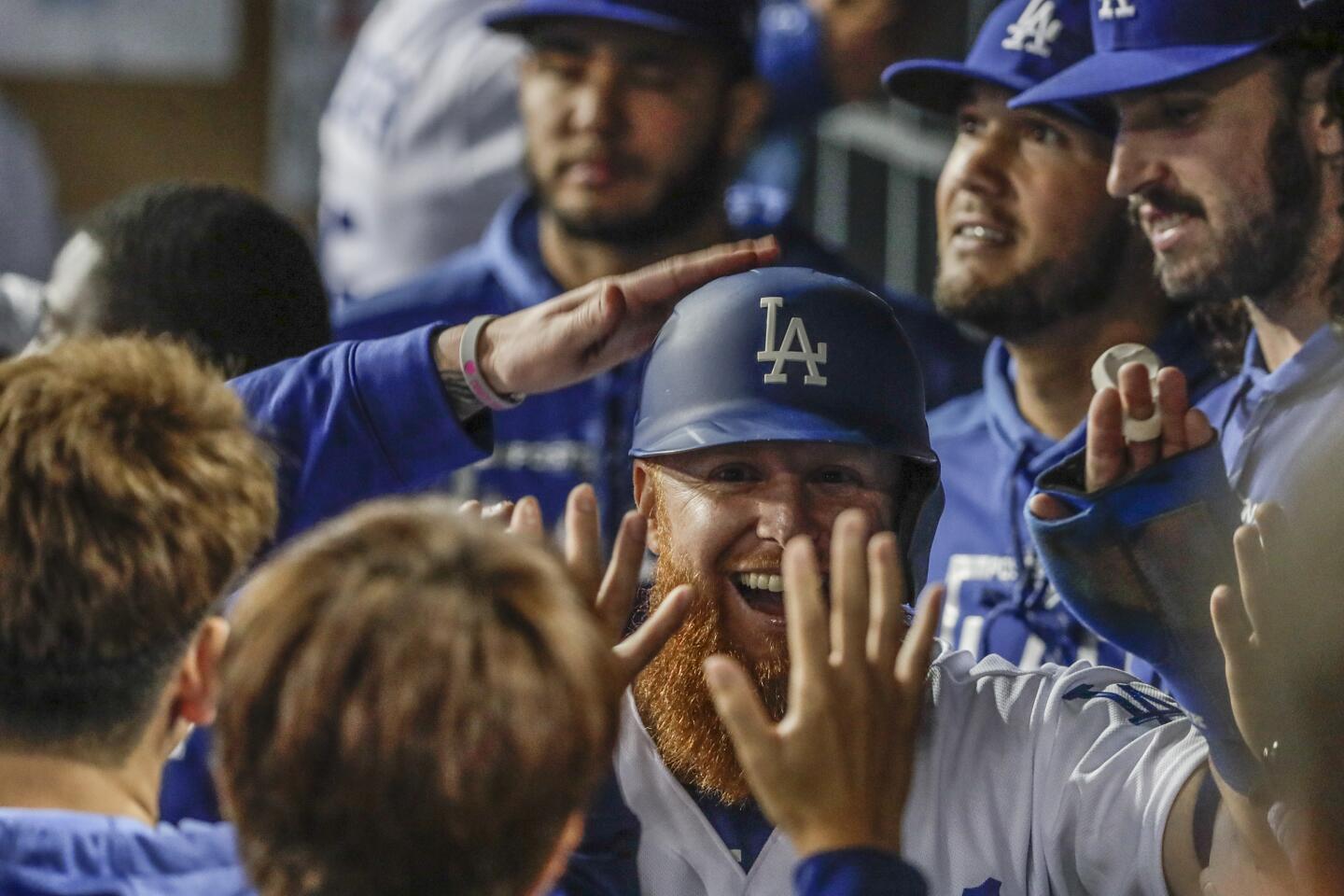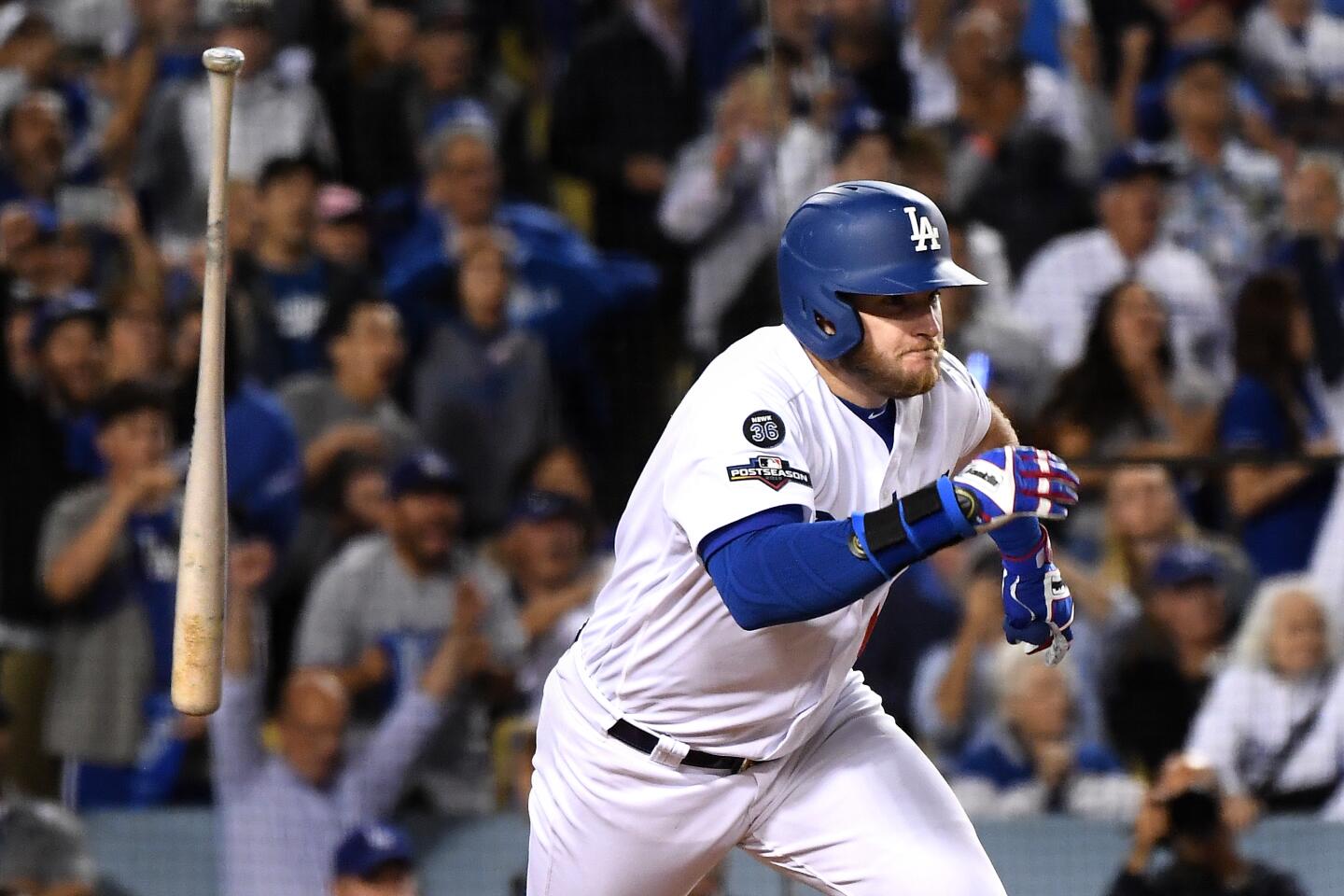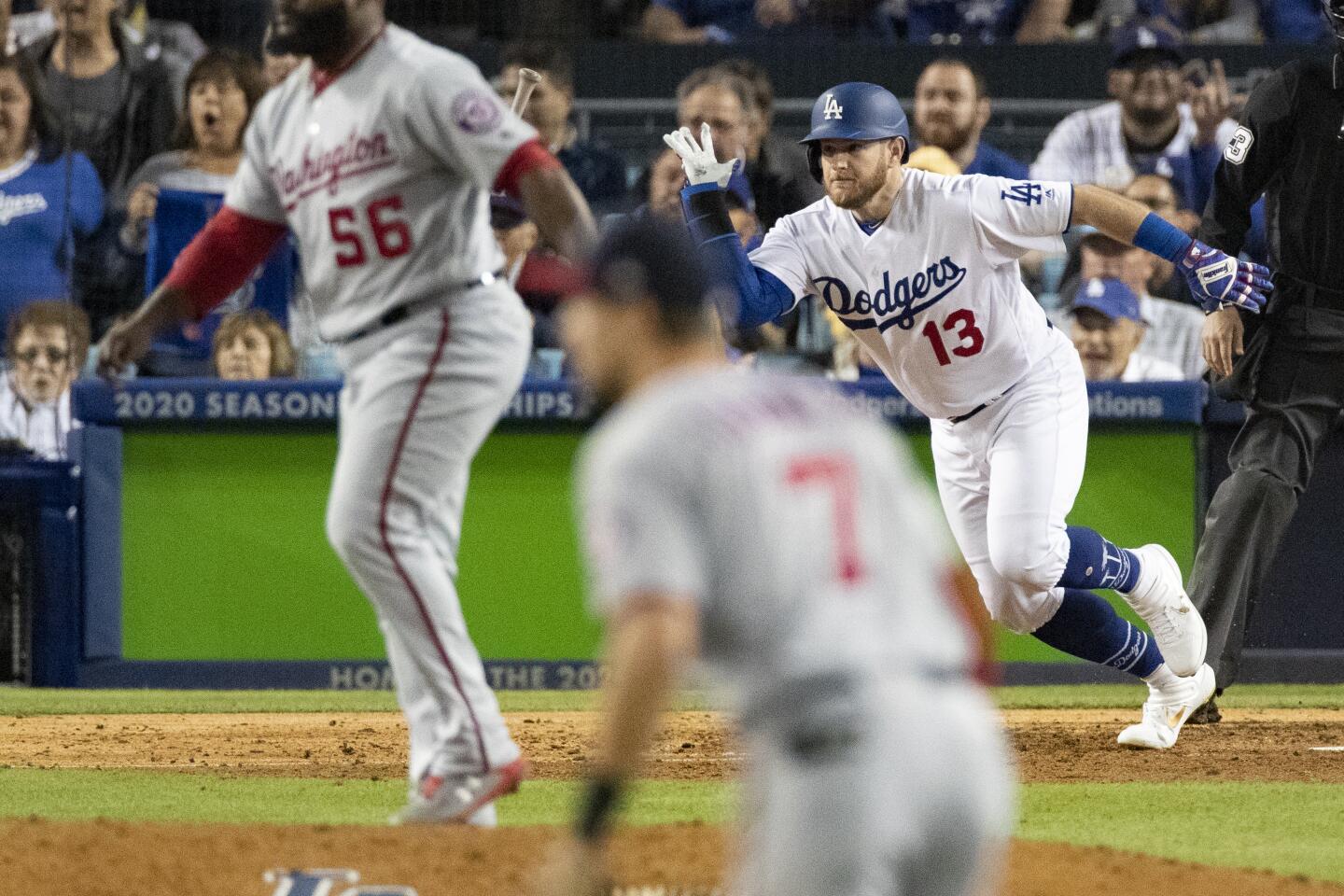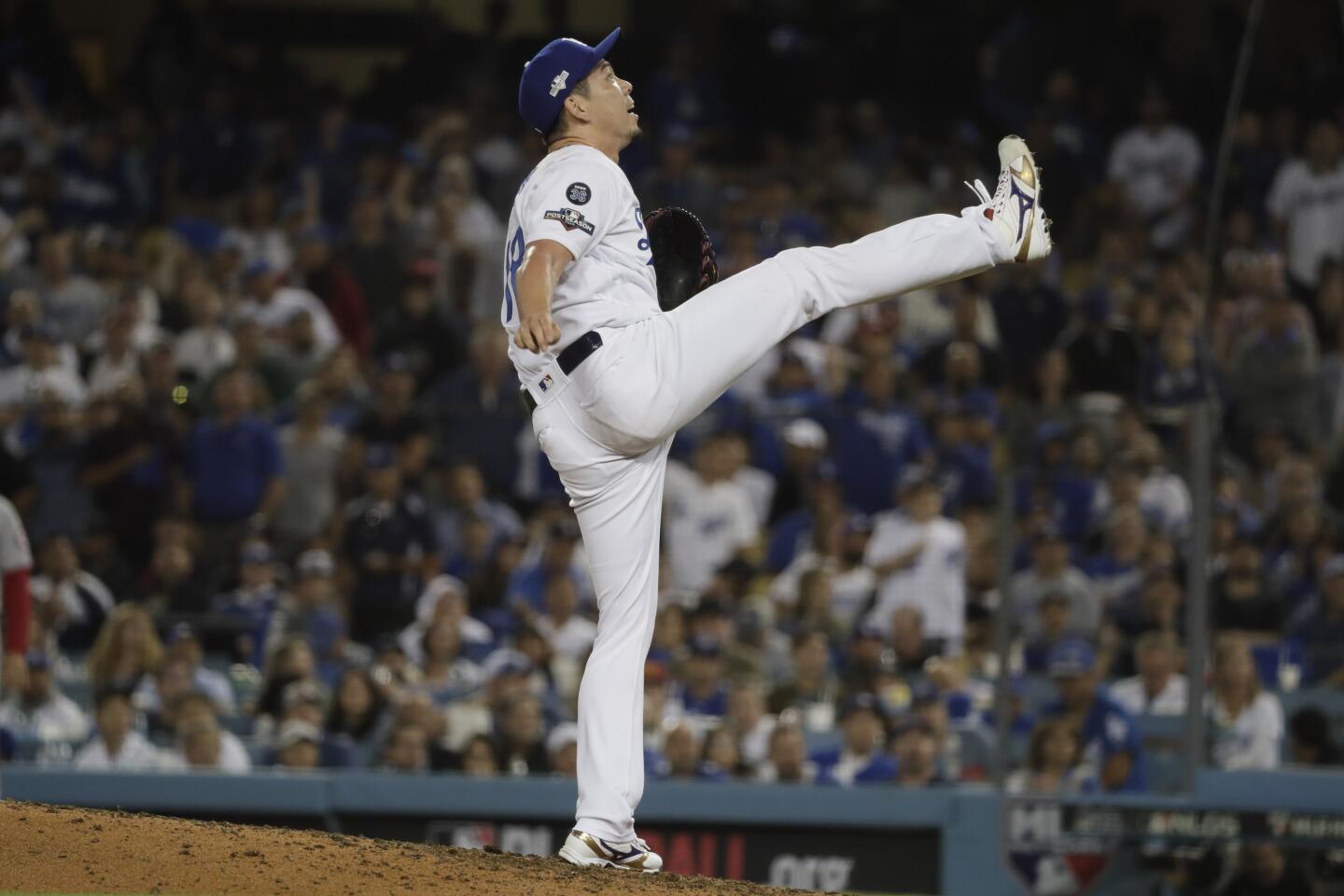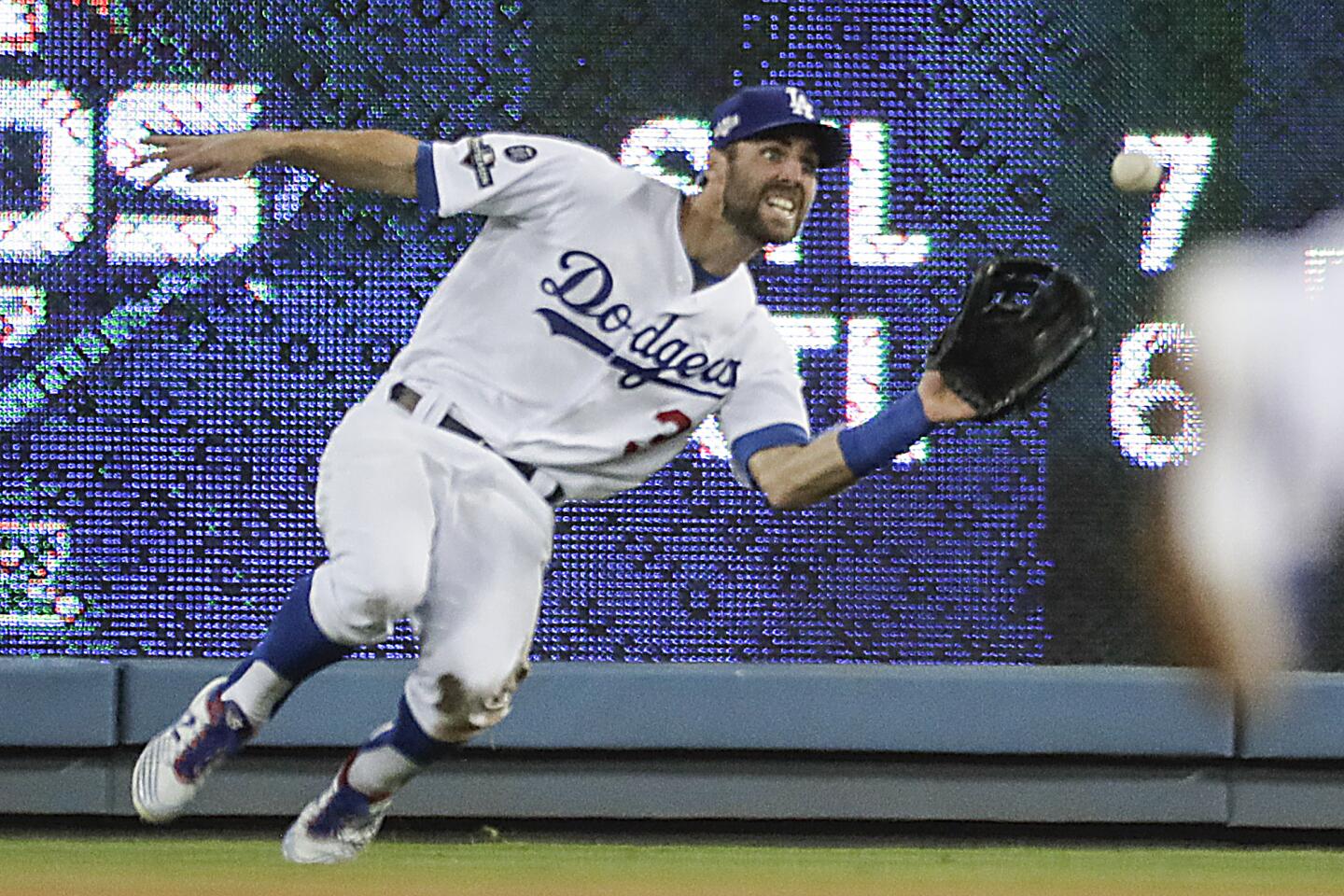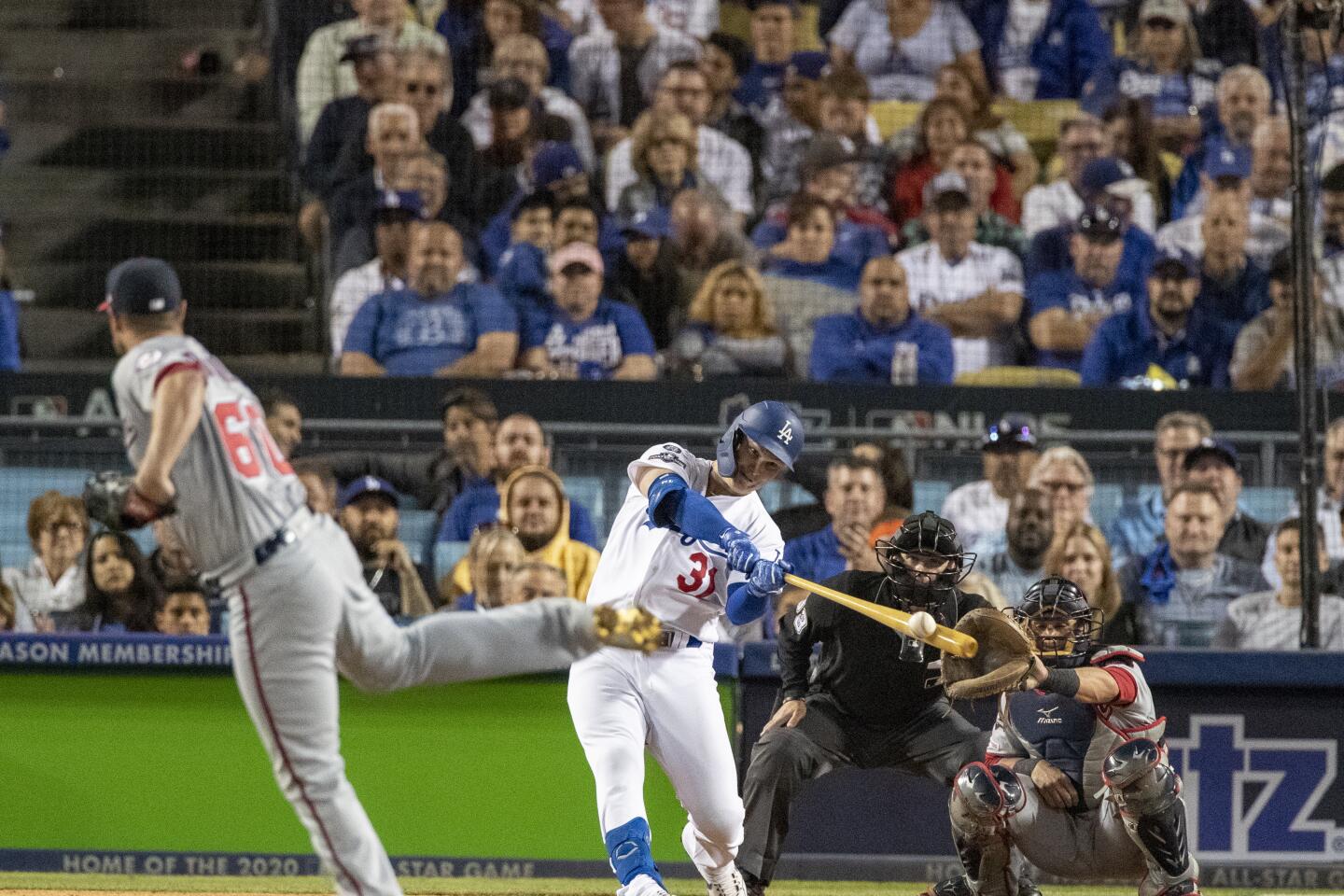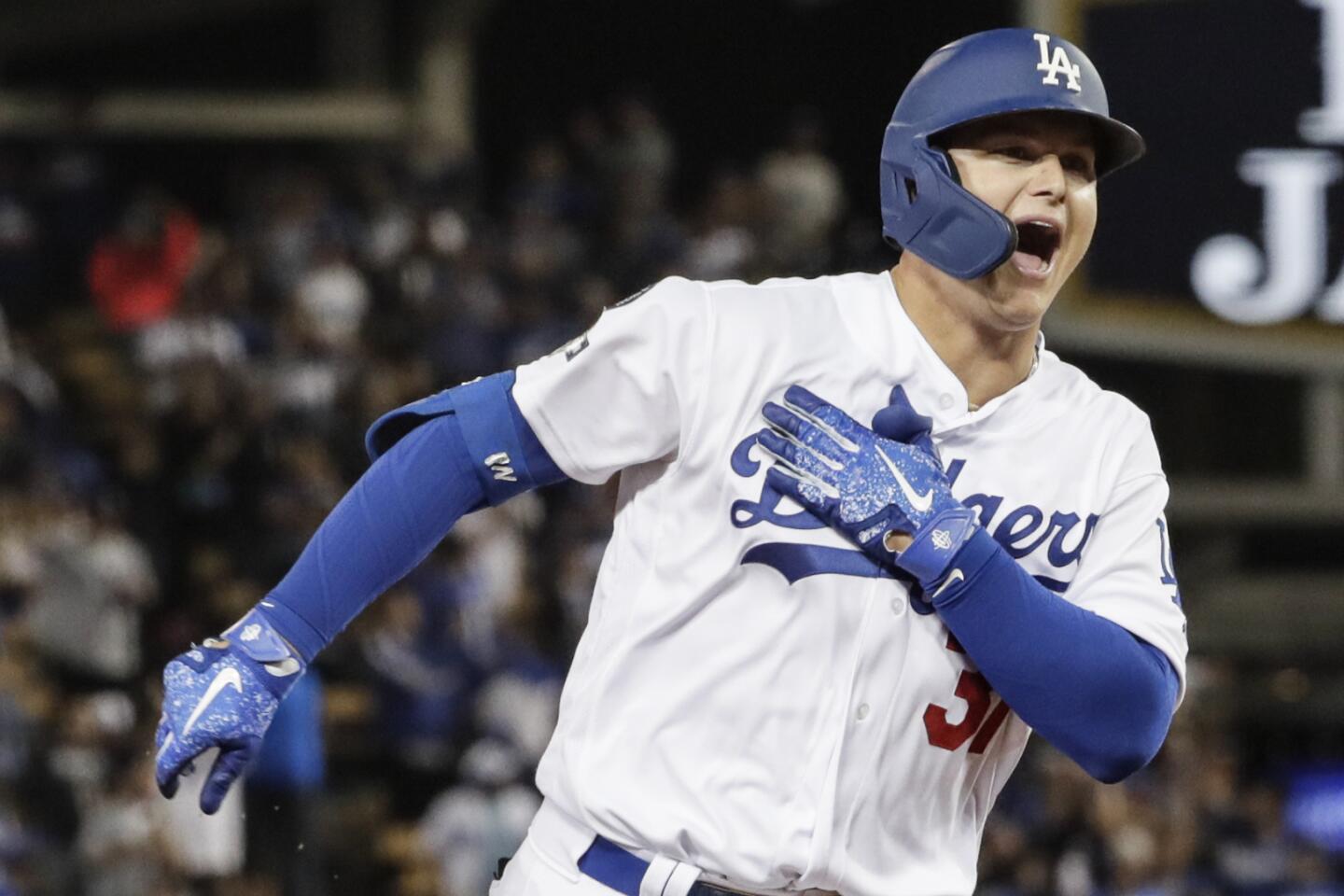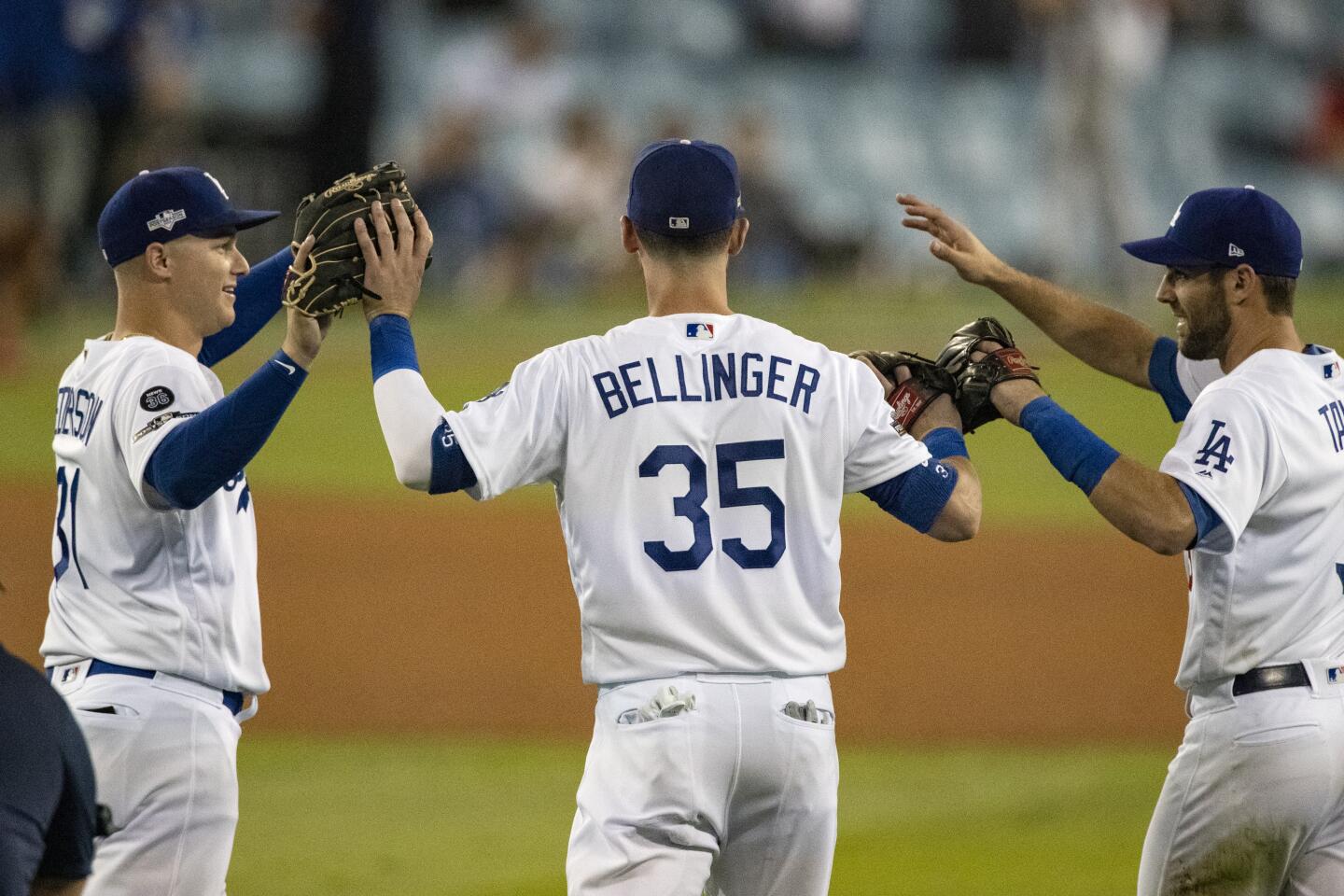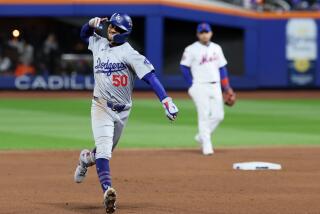Dodgers’ Adam Kolarek makes the most out of his long-awaited postseason debut
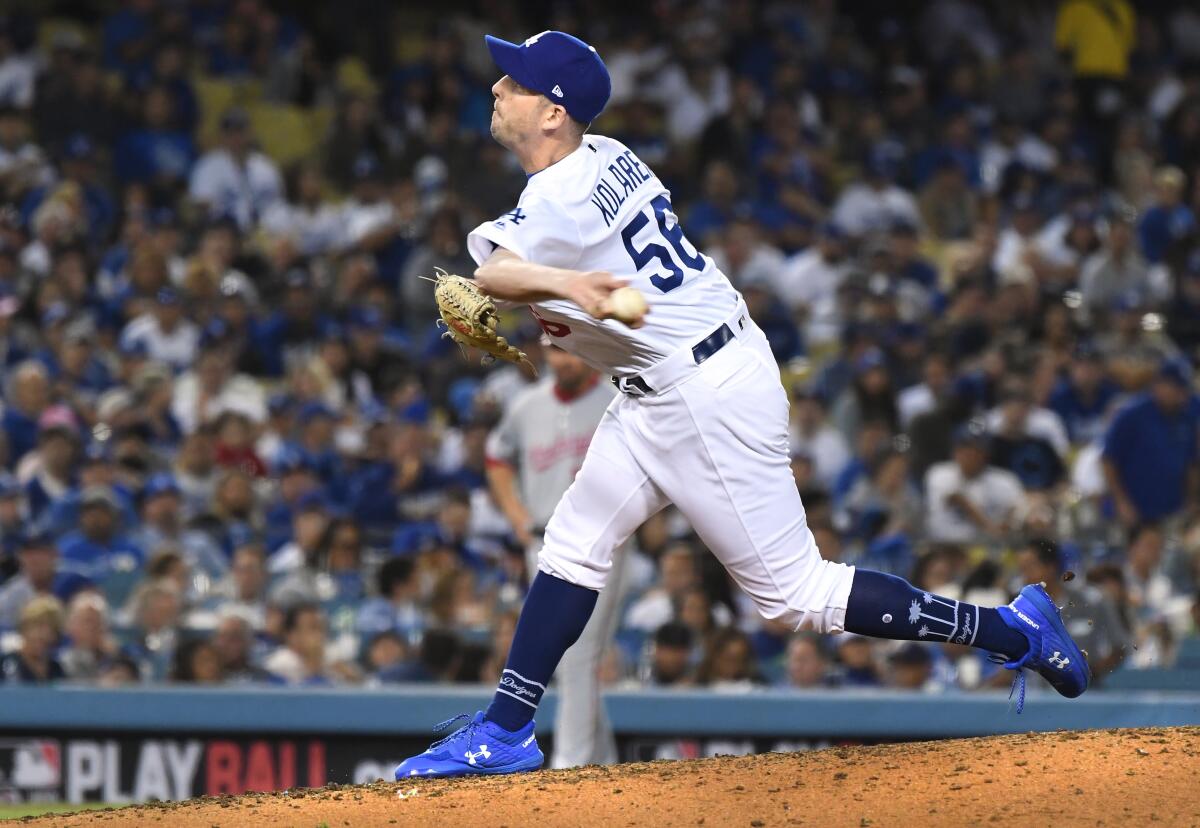
- Share via
Adam Kolarek had waited a decade for this moment. His father used to scout for the Baltimore Orioles, and he grew up dreaming of a minute in the October spotlight. He played for nine minor league teamsin seven states before making his major league debut.
So hats off to Gavin Lux, who made his postseason debut at 21. But Kolarek made his at 30, and his October minute was literally that.
The national anthem singer spent more time on the field than Kolarek did. He threw three pitches, and his night was done. His morning and afternoon had dragged, in anticipation of lining up on the third-base line, sharing in the anthem, taking in the fireworks.
“The day really crawled,” he said. “I was really anxious for game time.”
Dodgers right-hander Walker Buehler struts his stuff, tossing six scoreless innings in a 6-0 shutout of the Washington Nationals in Game 1 of the NLDS.
This wouldn’t be a story, of course, had Kolarek not done his job with distinction. The final score might have been lopsided — the Dodgers opened the National League Division Series with a 6-0 victory over the Washington Nationals — but Kolarek got a big out when the game still was in doubt.
That was the only out the Dodgers trusted him to get. He is here to retire a left-handed batter. Clayton Kershaw or Kenley Jansen can walk the first guy and strike out the next; Kolarek usually gets no second batter.
“I know the importance of each pitch,” he said. “I try not to let it be too jarring. I know I have to bear down for just a few short minutes.
“It’s a great role. It’s even sweeter when you get your guy out.”

Dodgers players talk about their 6-0 victory over the Washington Nationals in Game 1 of the National League Division Series on Thursday.
Kolarek’s assignment on this night was to retire Juan Soto, the Nationals’ cleanup batter and proud owner of the “Childish Bambino” nickname. When the Nationals finally roused from their offensive slumber in the eighth inning of Tuesday’s wild-card game, Soto was the guy who delivered the game-winning hit.
The Nationals had outlasted Dodgers starter Walker Buehler, who dominated them over the first six innings. They got one hit, and all that seemed to stand between Buehler and a shutout was his pitch count.
This would be the Nationals’ chance, down 2-0. Soto led off the seventh, but his stay in the batter’s box was brief.
Strike one. Strike two. Strike three.
Soto stayed in the game, of course. Kolarek did not.
He was not the reliever the Dodgers fans coveted at the July trade deadline, primarily because they did not know who he was.
He was drafted in the 11th round, nine years ago. He made his major league debut two years ago, at 28. He was an especially anonymous bullpen cog for the generally anonymous Tampa Bay Rays.
This is the first year in which he has not spent any time in the minors. It could be his last too.
He has done his job splendidly, but his job could cease to exist next year. The so-called LOOGY — left-handed, one-out guy — is an endangered species.
If major league owners enact their plan to force relievers to face a minimum of three batters next year, Kolarek could struggle to remain in the majors.
He faced at least three batters in 38 of his 80 appearances this season — and six of 26 times with the Dodgers. Thursday’s game marked the ninth consecutive time he has faced one batter, and he has retired the batter eight times.

The Los Angeles Dodgers won game 1 of the NLDS over the Washington Nationals 6-0. Our reporters discuss the win and ponder if the series is already over.
Kolarek said he is not worried about next year. His splits justify how the Dodgers have used him — his career OPS is .524 against left-handed batters, .849 against right-handed batters — but he relies on a sinker, not on the sweeping curve so prevalent among left-handed specialists.
“If I can get my ground ball, I can still contribute,” he said.
He attributed at least some of his contribution on Thursday to the fans. If he had remained in Tampa Bay and then made his postseason debut in front of a sellout crowd after playing in front a mostly empty dome all summer, well, maybe he would have been a little nervous.
“That’s an advantage of playing at Dodger Stadium,” Kolarek said. “You have a good crowd every night.”
More to Read
Are you a true-blue fan?
Get our Dodgers Dugout newsletter for insights, news and much more.
You may occasionally receive promotional content from the Los Angeles Times.

